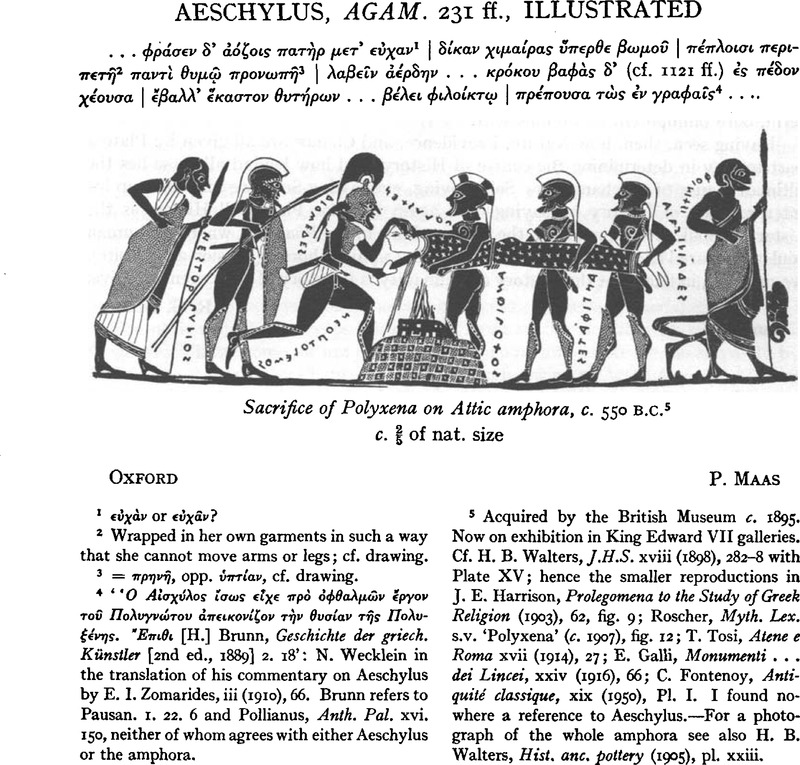Published online by Cambridge University Press: 11 February 2009

page 94 note 1 εùχàν or εùχàν
page 94 note 2 Wrapped in her own garments in such a way that she cannot move arms or legs; cf. drawing
page 94 note 3 = πρηνη, opp. νπτíαν, cf. drawing
page 94 note 4 ![]()
![]()
![]() [H.] Brunn, Geschichte der griech. Künstler [2nd ed., 1889] 2. 18′: N. Wecklein in the translation of his commentary on Aeschylus by E. I. Zomarides, iii (1910), 66. Brunn refers to Pausan. 1. 22. 6 and Pollianus, Anth. Pal. xvi. 150, neither of whom agrees with either Aeschylus or the amphora.
[H.] Brunn, Geschichte der griech. Künstler [2nd ed., 1889] 2. 18′: N. Wecklein in the translation of his commentary on Aeschylus by E. I. Zomarides, iii (1910), 66. Brunn refers to Pausan. 1. 22. 6 and Pollianus, Anth. Pal. xvi. 150, neither of whom agrees with either Aeschylus or the amphora.
page 94 note 5 Acquired by the British Museum c. 1895. Now on exhibition in King Edward VII galleries. Cf. H. B. Walters, J.H.S. xviii (1898), 282–8 with Plate XV; hence the smaller reproductions in J. E. Harrison, Prolegomena to the Study of Greek Religion (1903), 62, fig. 9; Roscher, Myth. Lex. s.v. ‘Polyxena’ (c. 1907), fig. 12; T. Tosi, Atene e Roma xvii (1914), 27; E. Galli, Monumenti … dei Lincei, xxiv (1916), 66; C. Fontenoy, Antiquité classique, xix (1950), PI. I. I found nowhere a reference to Aeschylus.—For a photograph of the whole amphora see also H. B. Walters, Hist. anc. pottery (1905), pi. xxiii.